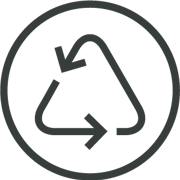Batteries Compliance
Step into action and achieve responsible compliance with the Battery Regulations
The Waste Battery and Accumulator Regulations 2009 set out the requirements for waste battery collection, treatment, recycling and disposal for all battery types. The regulations affect producers, battery distributors (retailers), waste battery collectors, recyclers, and exporters.
You will be obligated as a producer under this legislation if your business first places batteries onto the UK market; this includes batteries contained within products such as in a laptop or mobile phone etc. Therefore, if you import electrical and electronic products containing batteries into the UK it is likely you will have an obligation under these regulations. Your company must also have a physical presence in the UK, such as a UK office, trading arm, or Post Office box to be considered a producer.
The types of batteries covered in the legislation are automotive batteries, industrial batteries and portable batteries. Your company is not considered the producer of batteries if you import them for your own use.

Why Beyondly?
Join our circle of members today! Beyondly is a B Corp accredited compliance scheme offering a straightforward way to fulfil your waste battery obligation. All battery compliance members with Beyondly receive the following benefits:
- Dedicated Account Team
- Fulfilment of legal obligation
- Completion of Environment Agency data submissions
- Advanced online membership account
- Reviews of data collection processes to increase efficiency
- Free webinars on a host of environmental topics
- Support with Environment Agency audits
- Downloadable compliance support documents
- Annual compliance certificates
- Free email newsletters
Becoming fully compliant with the battery regulations and registering your business with Beyondly as a battery scheme member is simple, cost-effective, and online for your convenience.
Get started today
If you wish to try us out, register for a trial membership. Alternatively, get moving today and become an esteemed member of Beyondly! All you need to do is complete our online membership form.
Close the circle and let us collect your old batteries for recycling! Complete our contact form to arrange a collection today.
Contact our friendly team for any specific waste battery compliance or collection questions.





